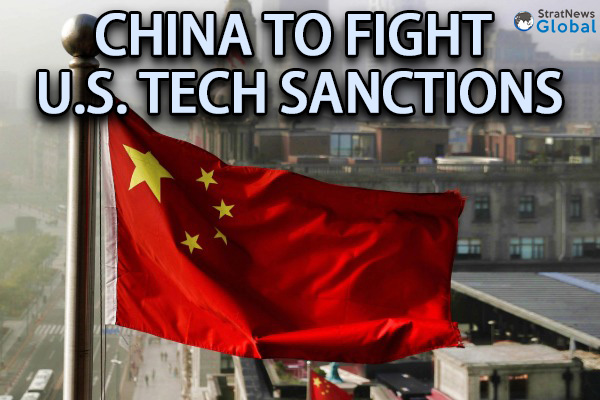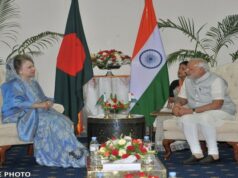China’s top legislature has said that U.S. sanctions to prevent China from obtaining the latest technology would prove futile.
“For any technology known to man, [the U.S.] cannot choke [China’s development]. It is merely a matter of time [before we prevail],” said National People’s Congress (NPC) spokesman Lou Qinjian in Beijing as quoted by the South China Morning Post.
Lou said that moves to isolate China would not matter as it would now join hands with others to innovate and collaborate. Washington’s approach seeking to disrupt supply chains undermined industrial development worldwide, he added.
Lou praised China’s prowess in independent innovation amid adversity. He highlighted the example of how Beijing developed its satellite navigation system while facing challenges and sluggish progress.
The sanctions imposed by the U.S. government have hit the semiconductor industry in China with Beijing being unable to produce semiconductors for the most advanced processes.
Though companies like Huawei have made strides in the sector, China is still reliant on the West for high-end chips.
The Biden administration in 2023 had announced tightening export controls on semiconductor chips to prevent China from acquiring advanced chips.
The rule updated restrictions by prohibiting the sale of chips above a certain capability threshold in China. It closes loopholes that emerged from the 2022 export control curbs.
One of the major thrusts this year, according to Lou, would be to push new legislation for creating cutting-edge tech.
So far there is no fixed law on AI. In April last year, the Chinese government issued draft regulations for the management of generative AI services to prevent misuse.
Tech executives have asked the Chinese government to push for home-grown advanced chips and train talent to help with its artificial intelligence (AI) push.
Lei Jun, co-founder and CEO of smartphone giant Xiaomi said that the country should strengthen AI education to drive the country’s technology and industry upgrades.
In a career spanning three decades and counting, Ramananda (Ram to his friends) has been the foreign editor of The Telegraph, Outlook Magazine and the New Indian Express. He helped set up rediff.com’s editorial operations in San Jose and New York, helmed sify.com, and was the founder editor of India.com.
His work has featured in national and international publications like the Al Jazeera Centre for Studies, Global Times and Ashahi Shimbun. But his one constant over all these years, he says, has been the attempt to understand rising India’s place in the world.
He can rustle up a mean salad, his oil-less pepper chicken is to die for, and all it takes is some beer and rhythm and blues to rock his soul.
Talk to him about foreign and strategic affairs, media, South Asia, China, and of course India.





